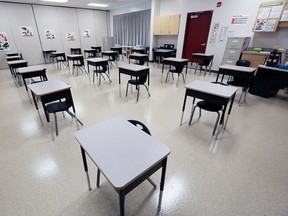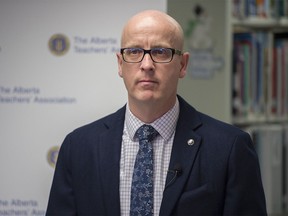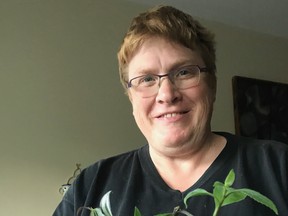“I hear a lot of concerns from teachers that students don’t have the necessary background knowledge for the new math curriculum”

.
The UCP government’s controversial K-3 curriculum is already causing challenges in classrooms this fall, from a lack of resources and learning materials, to a hasty implementation of what critics say is inappropriate rote learning for age.
Announcement 2
.
Alberta Education announced an updated draft of its long-awaited and much-criticized math and language arts curriculum this May for students in kindergarten through grade 3, along with a new financial literacy component to the health and fitness curriculum. 6th grade wellness, all to be implemented this fall.
.
As a result, school boards scrambled to train teachers during the late spring and summer months to prepare.
But critics say that even after thousands of teachers have used their vacation time to learn the new curriculum, many are still struggling to implement it in the classroom.
“Our feedback from the field is that the resources just aren’t being provided … and that can be very difficult when trying to implement curriculum that has already been so rushed,” said Jason Schilling, president of the Alberta Teachers Association.
Announcement 3
.
“That can mean a number of things for math and language arts, whether it’s textbooks, picture books, movies, modern histories, or indigenous stories by indigenous authors—those materials that correlate with a new syllabus simply don’t they are there for a long time. of teachers.”

Officials with the Calgary Board of Education said they have been buying a large number of resources since the spring, but admit they are still waiting for some due to supply chain issues.
Joanne Pitman, CBE’s superintendent of school improvement, explained that more resources will be purchased throughout the year, particularly those that help students in the early grades sound out letters, recognize words and begin to read.
“We purchase and continue to receive materials as there have been some delays in supply chain deliveries,” Pitman said.
Announcement 4
.
“But we have purchased significant new resources of decodables and resources specific to teaching phonological awareness.
“We have presented a strategy so that schools can buy more based on their experiences and needs.”
Pitman added that Alberta Education is also making resources available online.
But Maren Aukerman, a research professor and curriculum expert at the University of Calgary’s Werklund School of Education, argued that the province’s digital offerings are few and of poor quality.
-
Feedback on Alberta’s K-6 curriculum shows low levels of support, frustration with process
-
LaGrange Submits K-6 French and Science Curriculum Updates for Pilot Testing
-
Latest Alberta K-6 curriculum update addresses some concerns but fails the test: experts
In the new language arts curriculum, for example, Aukerman added that students are being force-fed too much information by rote, memorizing lists of words, spellings and definitions.
ad 5
.
And because that content is so overloaded, he said students don’t get enough opportunities to do the more important work of creative and critical thinking.
“If students aren’t given the opportunity to explore language, to discuss, to question, and to figure out how to make sense of something, then all the decoding in the world isn’t going to help,” Aukerman said.
“But critical thinking is being replaced by memorization.
“And on top of that, teachers still have to teach math, science and fill their day with more content-based work.”
Teachers have also raised concerns about the new math curriculum for K-3 students, saying parts of it are not age-appropriate, reducing complex concepts, such as counting to 1,000, from grade 3 to grade two.
ad 6
.
And due to learning loss from the pandemic, many are already behind and will be unprepared for complex concepts.
“I hear a lot of concerns from teachers that students don’t have the background knowledge needed for the new math curriculum,” Schilling said.
“And then because of the pandemic, teachers are scrambling to reach the kids.”
Aukerman added that because younger students also suffered a learning loss in literacy, now is not the time to introduce a new, overloaded curriculum.
“Language and reading is something that we end up doing in all of our learning, in everything, including math. So this is absolutely at the core of all learning.”

But Pitman is confident that the CBE staff is up to the task of implementing new concepts, with about 1,600 of the 4,500 K-3 teachers participating in summer preparation courses.
ad 7
.
“Now that the school year is underway, some of the feedback is that the teachers recognize that they have the educational experience and have benefited from the preparation.”
Helmut Kaiser, director of learning services at the Calgary Catholic School District, added that while the separate school board did not offer summer training, it did provide prep work in the spring and will continue to offer development throughout the year.
“Some of the feedback we get is that a lot of the new curriculum is similar to what teachers have already been doing, so that’s positive,” Kaiser said.
“But at the same time, they are dealing with workload issues, including mandatory literacy assessments of younger students to address learning loss from the pandemic.”
ad 8
.
Alberta Education said they have received positive feedback from school boards, parents and teachers across the province since releasing updated drafts of the new curriculum last spring, adding Education Minister Adriana LaGrange met with over 50 school boards and curriculum implementation was not raised. as a matter of concern.
“Mathematics and English language arts and literature are essential to learning in the early years, two areas in which some of our youngest students are experiencing challenges,” said Katherine Stavropoulos, press secretary for LaGrange.
“Implementing the K-3 English Language Arts and Math curricula is helping to address some of the learning disruptions these young students experience by strengthening their numeracy and literacy skills.
“We promised parents that their children would learn important foundational concepts to build reading and writing skills as recommended by experts, and we’ve heard extremely positive feedback about this approach.”




